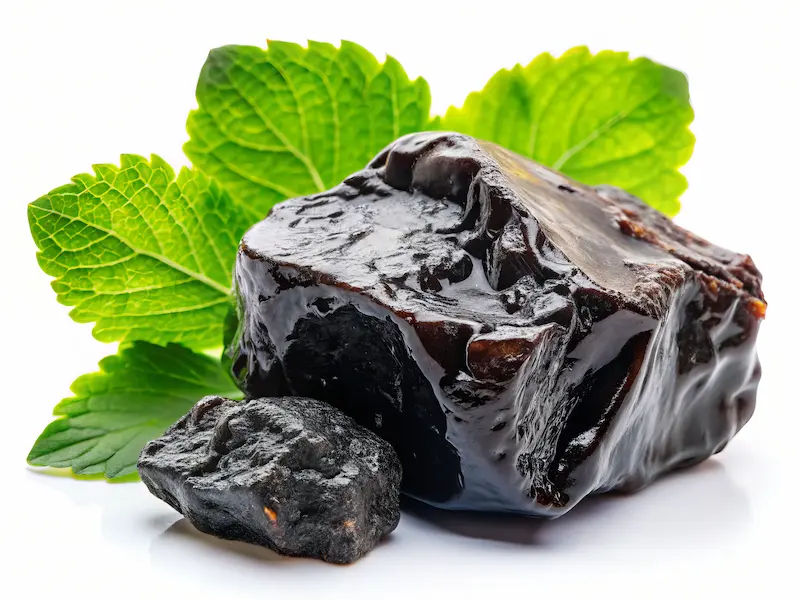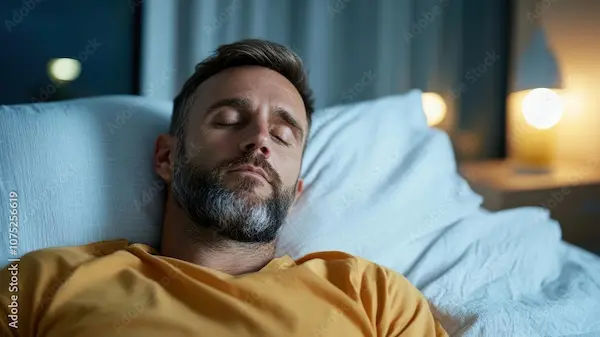Top Urology Issues in Men
Discover the top urology issues affecting men, their symptoms, causes, and treatment options to support better urinary and reproductive health.

Written by Dr. Vasanthasree Nair
Reviewed by Dr. Dhankecha Mayank Dineshbhai MBBS
Last updated on 13th Jan, 2026

Introduction
Urological health is a cornerstone of overall well-being for men, yet it’s a topic often shrouded in silence and hesitation. From prostate concerns to bladder function, understanding common top urology issues is the first step toward proactive health management. These conditions are incredibly prevalent, affecting millions of men worldwide, and can significantly impact quality of life. The good news is that most are highly treatable, especially when identified early. This guide breaks down the most critical urological health challenges men face, moving beyond just symptoms to explore causes, modern treatments, and essential prevention strategies. We’ll empower you with knowledge, demystify the jargon, and highlight when it’s crucial to seek professional advice from a urology specialist.
1. Benign Prostatic Hyperplasia (BPH): The Enlarged Prostate
BPH, or an enlarged prostate, is one of the most common top urology issues affecting men as they age. It's important to understand that BPH is not cancer and does not increase your risk of prostate cancer, though both conditions can exist simultaneously.
What is BPH?
The prostate gland surrounds the urethra, the tube through which urine exits the body. As men age, the prostate often enlarges. This growth can squeeze the urethra, acting like a clamp on a garden hose, and lead to a variety of bothersome urinary symptoms.
Common Symptoms and Warning Signs
Symptoms of BPH can develop slowly and are often overlooked as a normal part of ageing. Key signs include:
Weak urine stream: A noticeable decrease in the force of urination.
Urinary frequency: Needing to urinate more often, especially at night (nocturia).
Urgency: A sudden, strong need to urinate immediately.
Hesitancy: Difficulty starting urination.
Dribbling: Leaking or dribbling at the end of urination.
Modern Treatment and Management Options
Treatment depends on the severity of symptoms. For mild cases, watchful waiting may be sufficient. For more bothersome symptoms, medications can help relax prostate muscles or shrink the prostate gland. For severe BPH, minimally invasive surgical procedures like Rezūm Water Vapor Therapy or Transurethral Resection of the Prostate (TURP) can effectively remove obstructive tissue. If you're experiencing any of these symptoms of an enlarged prostate, consulting a urologist is essential for a proper diagnosis and personalised treatment plan.
Consult a Urologist for the best advice
2. Erectile Dysfunction (ED): Beyond a Simple Bedroom Issue
Erectile Dysfunction, the consistent inability to achieve or maintain an erection sufficient for sexual activity, is more than just a bedroom problem; it's often a barometer for overall health.
Understanding the Causes of ED
While psychological factors like stress and anxiety can play a role, ED is frequently linked to physical conditions. These include cardiovascular disease, diabetes, high blood pressure, and hormonal imbalances like low testosterone. Essentially, anything that impairs blood flow or nerve function can contribute to ED.
How ED Can Be a Sign of Other Health Problems
Because erections rely on healthy blood vessels, the onset of ED can be an early warning sign of underlying cardiovascular disease, sometimes appearing three to five years before a cardiac event. This makes addressing ED a potentially life-saving conversation.
Effective Treatments for Erectile Dysfunction
The landscape of how to treat erectile dysfunction has expanded dramatically. Options include:
Oral medications (PDE5 inhibitors): Such as Sildenafil (Viagra) and Tadalafil (Cialis).
Lifestyle changes: Exercise, weight loss, and quitting smoking can significantly improve erectile function.
Testosterone Replacement Therapy (TRT): If low testosterone is the root cause.
Devices and implants: Penile pumps and prosthetic implants are effective options when other treatments fail.
If your condition does not improve after trying lifestyle methods, consult a doctor online with Apollo24|7 for further evaluation and to discuss prescription options.
3. Prostate Cancer: Early Detection is Key
Prostate cancer is the most common cancer among men (after skin cancer), but it is also highly treatable when detected early. Understanding the early signs of prostate cancer and screening protocols is vital.
Risk Factors and Symptoms to Watch For
Risk factors include age (risk increases after 50), family history, and race (African-American men are at higher risk). Early-stage prostate cancer often has no symptoms. When symptoms do appear, they can mimic BPH: urinary frequency, weak stream, blood in semen, and erectile dysfunction.
The Importance of PSA Screening
The Prostate-Specific Antigen (PSA) test is a blood test that measures the level of PSA, a protein produced by the prostate. An elevated PSA level can indicate prostate cancer, but it can also be raised due to BPH or prostatitis. The decision to get screened should be a shared one between a man and his doctor, weighing the benefits of early detection against the risks of over-diagnosis.
Advancements in Prostate Cancer Treatment
Treatment is highly personalised and can include active surveillance for low-risk cancers, surgery (prostatectomy), radiation therapy, hormone therapy, and newer targeted treatments. Apollo24|7 offers convenient home collection for tests like PSA, making initial screening more accessible.
Get Your Health Assessed
4. Kidney Stones: The Unforgettable Pain
Kidney stones are hard deposits of minerals and salts that form inside your kidneys. Passing a stone is famously one of the most painful experiences a person can endure.
How Kidney Stones Form
Stones form when your urine contains more crystal-forming substances (like calcium, oxalate, and uric acid) than the fluid in your urine can dilute. Dehydration is a primary culprit.
Symptoms of a Kidney Stone Attack
The pain typically begins when a stone moves into the ureter (the tube connecting the kidney and bladder), causing a blockage. Symptoms include:
Severe, sharp pain in the back, side, lower abdomen, or groin.
Painful urination.
Pink, red, or brown urine (haematuria).
Nausea and vomiting.
Prevention Strategies: Diet and Hydration
The best treatment is prevention. How to prevent kidney stones primarily involves:
Staying hydrated: Drinking plenty of water is non-negotiable.
Dietary changes: Reducing sodium and animal protein intake, and moderating foods high in oxalates (like spinach and nuts) can help.
5. Male Incontinence: Loss of Bladder Control
Urinary incontinence is the loss of bladder control, leading to the involuntary leakage of urine. While more common in women, it is a significant issue for men, often linked to prostate health.
Types of Urinary Incontinence in Men
Urinary incontinence can affect men in different ways, and understanding its types helps in choosing the right management and treatment.
Stress Incontinence: Leakage when coughing, sneezing, or laughing.
Urge Incontinence: A sudden, intense urge to urinate followed by involuntary leakage.
Overflow Incontinence: Inability to empty the bladder completely, leading to frequent dribbling.
Often-Linked to Prostate Treatments
In men, treatments for prostate cancer or BPH surgery can sometimes damage the nerves or sphincter muscles that control urination, leading to temporary or permanent incontinence.
Regaining Control: Therapies and Solutions
Treatments are highly effective and include:
Pelvic floor exercises (Kegels): To strengthen the muscles that control urination.
Bladder training: Scheduled toilet trips to gradually increase the time between voiding.
Medications: To calm an overactive bladder.
Surgical procedures: Artificial urinary sphincters or slings can be implanted for severe cases.
Other Notable Urological Conditions
Apart from common urinary issues, men may also face several other urological conditions that impact overall health and well-being.
Testicular Cancer and the Importance of Self-Exams
Though relatively rare, testicular cancer is the most common cancer in young men aged 15-35. It is highly treatable. Monthly self-exams to check for lumps, swelling, or pain are crucial for early detection.
Prostatitis: Inflammation of the Prostate
Prostatitis is inflammation of the prostate gland, often causing painful urination, pelvic pain, and flu-like symptoms. It is not always caused by an infection and can be a complex condition to treat, requiring a urologist's care.
Low Testosterone (Low-T)
Testosterone levels naturally decline with age. Low testosterone symptoms can include reduced sex drive, ED, fatigue, loss of muscle mass, and mood changes. If symptoms are significant, testosterone replacement therapy may be an option after a thorough medical evaluation.
Prioritising Your Urological Health: Prevention and Proactive Care
The common thread among these top urology issues is that a proactive lifestyle is your best defense. Maintaining a healthy weight, exercising regularly, staying hydrated, eating a balanced diet rich in fruits and vegetables, and not smoking can dramatically reduce your risk for many urological conditions. Most importantly, shed the stigma and have open conversations with your doctor. Regular check-ups are not a sign of weakness but of wisdom.
Conclusion
Understanding the top urology issues affecting men is a powerful step toward taking control of your health. From the common challenges of BPH and ED to the serious nature of prostate cancer, knowledge demystifies these conditions and empowers you to seek timely help. Remember, these are medical issues, not personal failings. Ignoring symptoms out of embarrassment or fear only allows problems to worsen. Modern urology offers a vast array of effective treatments, from lifestyle adjustments and medication to minimally invasive surgeries. Your journey to better urological health starts with a conversation. Be proactive, listen to your body, and partner with a healthcare professional to ensure you live a full, healthy, and active life. If symptoms persist beyond two weeks, consult a doctor online with Apollo24|7 for further evaluation.
Consult a Urologist for the best advice
Consult a Urologist for the best advice
Dr. Mohammed Rehan Khan
Urologist
8 Years • MBBS, MS (General Surgery), Mch (Urology)
Barasat
Diab-Eat-Ease, Barasat

Dr. Moin Mohammed Bavakatti
Urologist
13 Years • MBBS, MS (General Surgery), Mch (Urology), DNB (Urology), Diploma in Minimal Access Surgery, Fellow of Internal College of Robotic Surgeons), Vinci Surgical system, Fellow in Endocrinology, Clinical and Research fellow in Laparoscopic Urology, Laser Endourology & Laparoscopic & Robotic Urology, Fellowship in 3D laparoscopic Urology
Bengaluru
Dr Moin Mohammed Bhavikatti Clinic, Bengaluru

Dr Anupam Sharma
Urologist
18 Years • MBBS, MS(Gen Surgery), DNB (Urology)
Delhi
Apollo Hospitals Indraprastha, Delhi
(25+ Patients)

Dr. Ramesh H
Urologist
16 Years • MBBS, MS , Mch( Urology)
Bengaluru
Apollo Clinic, JP nagar, Bengaluru

Dr. Pavan Kumar S K
Urologist
11 Years • MBBS, MS , Mch( Urology) DNB (Urology)
Bengaluru
Apollo Clinic, JP nagar, Bengaluru





